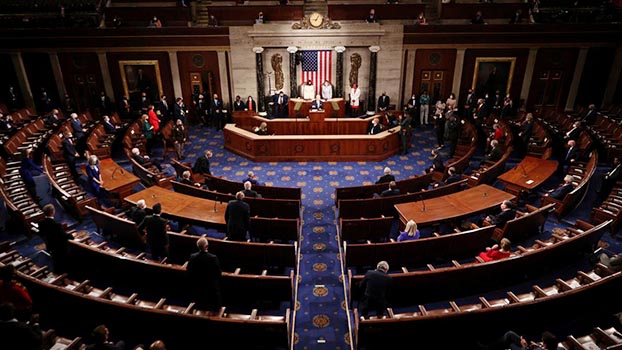More perilous phase ahead for Biden after his 1st 100 days


AP, Washington
Joe Biden's presidency is entering a new and more perilous phase where he is almost certain to face stiffer Republican opposition and also have difficulty keeping Democrats united as he pushes for $4 trillion in additional spending on programs that have echoes of the New Deal and the Great Society.
Past the 100-day mark, with positive approval ratings and a far-reaching, nearly $2 trillion COVID-19 relief bill to show for it, Biden is now facing far more uncertain terrain. The president is racing against the calendar, governing with the most slender of majorities on Capitol Hill while knowing that historically the party that holds the White House loses seats in midterm elections, which would cost Democrats control of Congress after the 2022 vote.
His next 100 days will feature his first foreign trip but will be dominated by his push to pass his expansive plans on infrastructure and children, families and education, which would expand the social safety net for children, increase taxes on the wealthy and fund projects that his critics say are infrastructure in name only. Overall, his approach is less about stimulating the economy than stabilizing it over the long term with middle-class jobs, and proving that a democracy, even a bitterly divided one, remains capable of doing big things. "In another era when our democracy was tested, Franklin Roosevelt reminded us: In America, we do our part," Biden said in his address to Congress on Wednesday night. "That's all I'm asking. That we all do our part. And if we do, then we will meet the central challenge of the age by proving that democracy is durable and strong."
Biden has made personal overtures to Republicans in Congress, but the efforts were aimed at least as much at Republican voters, who have been far more supportive of his plans. A nod to bipartisanship is also important to reassure moderate Democrats such as Sen. Joe Manchin of West Virginia that the president is at least trying to win over Republicans, even if in the end he might push ahead without them.
His task may be easier given the hopeful signs of a strong economic recovery, with an annualized growth rate of 6.4% during the first three months of the year. With the relief bill passed, Biden's economic team is now able to focus on structural issues such as income inequality, systemic racism and shortfalls in public investment.
"These were ideas that were germinating pre-pandemic," said Heather Boushey, a member of the White House Council of Economic Advisers. "It feels like these are things that we've known we needed to do." Several aides are now focused on distributing billions of dollars from the relief package for housing assistance, school upgrades and state and local government aid. The administration also wants to measure the results of the spending to show Congress that its relief programs are succeeding.
One example: The expanded child tax credit is of critical importance because Biden has proposed extending the one-year increase through 2025 as part of his families plan. "We know that implementing the enhanced child tax credit right is critical not just to cutting child poverty this year but to showing it can be done well so that it builds support for extending it on and on," said Gene Sperling, named by Biden to oversee the relief programs.

